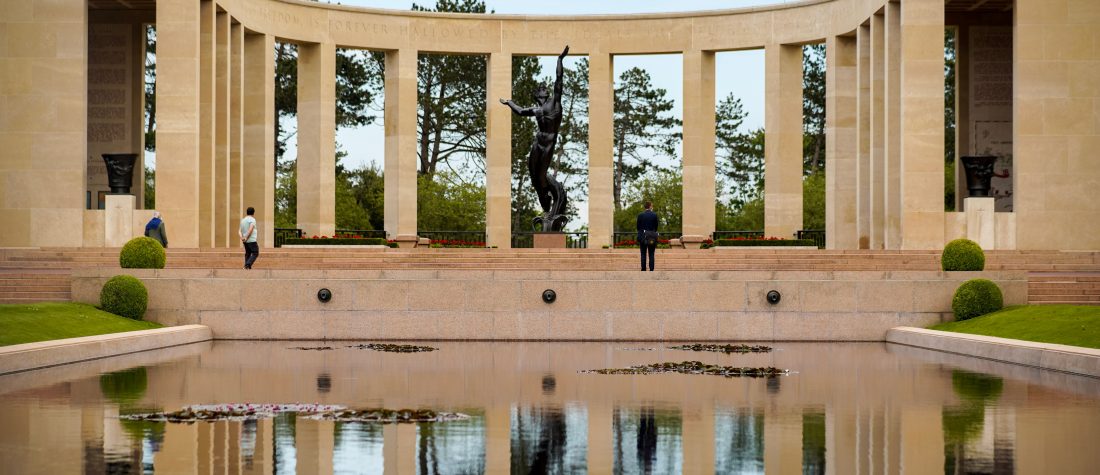After the Gestapo tortured and killed their author, the memoirs of French medieval historian and anti-Nazi resistance fighter Marc Bloch were published posthumously as Strange Defeat in 1946. But to use “strange” to describe France’s defeat by Germany in the summer of 1940 is a vast understatement.
In the short span of six weeks through May and June that year, the entire paradigm through which Britain and America approached the nascent world conflict was turned on its head (so argued military historian Michael S. Neiberg in the latest episode of the Uncommon Decency podcast). The Chair of War Studies at the US Army War College, Neiberg is fresh off publishing a celebrated book on the subject, When France Fell: The Vichy Crisis and the Fate of the Anglo-American Alliance (2021). In it, he describes the state of utter panic that gripped the US military establishment upon seeing French defences crumble so swiftly under Nazi attack, a defeat that US War Secretary Henry Stimson would later describe as “the most shocking single event” of World War II.
To lose a friend
Nazi occupation of northern France had dramatic consequences for the conduct of the war, too. No longer could the English-speaking democracies trust the powerful French army and its Maginot line to act as the bulwark they had been in World War I. France’s world-spanning navy and its far-flung colonial possessions—including such strategic ports as Dakar (Senegal) and Fort-de-France (Martinique)—were suddenly ripe for capture by the Axis powers.
So swift and unforeseen was the country’s defeat that the Allies surmised pro-German fifth column activity to have been at play in the decadent Third Republic (the precursor to Marshal Pétain’s Vichy regime). Suddenly, America began to fear similar pro-German coup attempts in its own Latin American backyard. For Neiberg, beginning the history of America’s involvement in the conflict with Japan’s attack on Pearl Harbor, as is popularly done, is misleading rather than illuminating. The country’s collective memory of the war as a period of American strength overlooks the faulty and desperate decision-making that drove US policy right up until the Allies finally turned the tables in 1943.
Dirty hands muddy the waters
Neiberg set about writing his book under the influence of the so-called “dirty hands” hypothesis, famously hashed out by Harvard historian William Langer in his seminal work from 1947 Our Vichy Gamble—namely, that America had gambled on Vichy, begrudgingly accepting it as France’s rightful government in the hopes that the more anti-German elements within it, such as generals Darlan, Giraud and Weygand, would eventually prevail over Nazi stooges like Pierre Laval, with the overall effect of keeping Vichy neutral in the war.
In his book, Nieberg confirms the broad outline of this hypothesis—with one caveat. America’s recognition of Vichy had nothing of the premeditated, thought-out decision that triumphalist historians have retrospectively described. Instead, it was rushed, panicked and simply put: morally inept. It effectively placed the United States in league with a fascist regime and nearly ruined the embryonic special relationship with the UK, which had chosen to back Charles de Gaulle’s appeal. After the war, the decision to back Vichy was to taint America’s relationship with its oldest ally, France, for decades.
Exposure, weakness
The irony of this book about such a niche facet of this conflict is how it chimes with modern geopolitics. In June 1940, America learnt the hard way that outsourcing its defence to its European partners left it woefully exposed. The US responded to France’s defeat by forming its own version of a national unity government; instituting peacetime conscription and domestic spying to weed out internal enemies; and launching what was at the time the largest ever military ramp-up in history (one that President Eisenhower would later warn about in his ominous speech on the “military industrial complex”).
The tables turn
Today, it is European states that act as free riders on American defence, with French President Emmanuel Macron recently launching an EU-wide debate on “strategic autonomy”. Neiberg’s book also indirectly addresses France’s memory of the conflict – proving that, far from being a secret, Vichy’s record of anti-Semitic policies was well known to American policymakers, who nonetheless chose to work with it. This constitutes yet another nail in the coffin of the so-called “theory of the sword and shield”, whereby a generation of French historians leading up to Robert Paxton’s seminal history of Vichy in 1972 had whitewashed the regime as a lesser evil, a bulwark that allowed De Gaulle’s résistance to strike the common German enemy. Right-wing intellectual Éric Zemmour has recently reignited this dispute claiming: “Pétain saved the French Jews”.
Rewriting history
Winston Churchill, that other eminent wartime leader, was fond of saying that “history is written by the victors”. In the context of World War II, this has often produced exceedingly heroic and triumphalist narratives, including those portraying the United States as a calculating, astute actor that kept out of the war until it ran out of options. By providing a more nuanced account of America’s policies towards the Vichy government, Neiberg’s book has proved an important corrective.
Jorge González-Gallarza (@JorgeGGallarza) and François Valentin (@Valen10Francois) are co-hosts of the Uncommon Decency podcast on Europe (@UnDecencyPod). Consider supporting their show on Patreon at patreon.com/UnDecencyPod.


